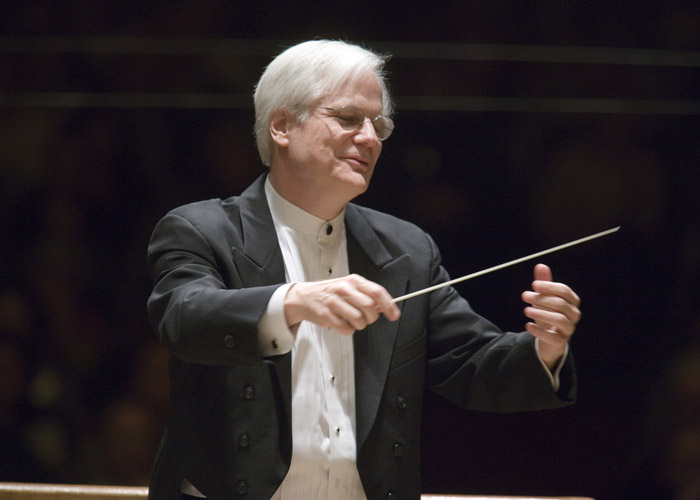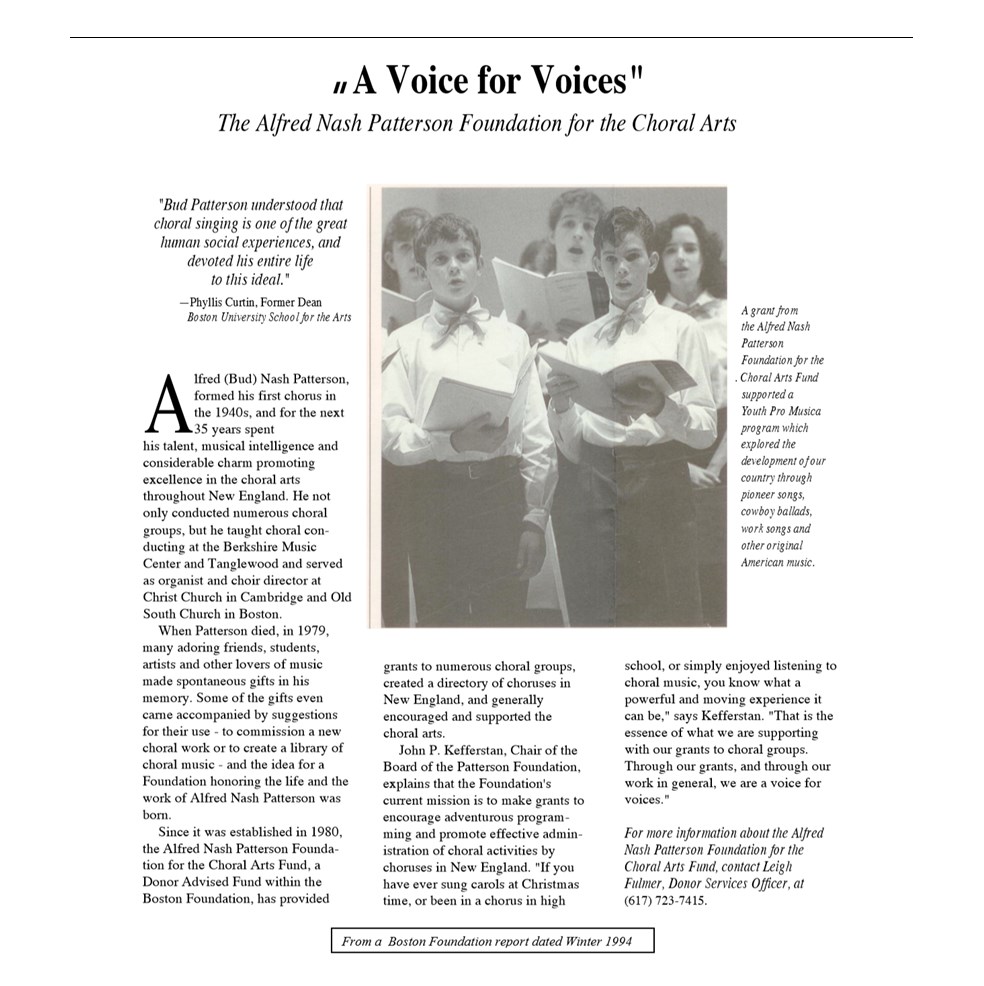Voice4Voices
Content showing the value and importance of choral music
The John Oliver Memorial Fund
"American Voices"
PBS released a short feature in November 2019 about choral music, focusing on composers Eric Whitacre, Frank Ticheli and Morten Lauridsen. Their stories placed against the backdrop of a broad view of choral music offers a bit history lesson and a bit modern perspective. The show may be viewed at https://www.pbs.org/video/american-voices-8ndxz5/
The Irving Forbes Centennial Fund
The Choral Excellence Honor Roll
Thanks to all for your commitment to the future of the choral arts!
Updated April 1, 2023
Exemplary Grants
A full list of Alfred Nash Patterson Grants can be found online, on this website.
Frequently Asked Questions
I donate to my local chorus. Why should I give to Choral Arts New England as well?
Grant Trends
Grant proposals increased in number from 23 in 2003 to 52 in 2019, with a peak of 63 in 2014. Similarly, monetary requests increased from $52,891 in 2003 to $170,392 in 2013, with about $123,000 requested in 2019. The graphs on the left illustrate these trends.
As the graphs also show, the number of grants that we have been able to approve has remained fairly steady, ranging from a low of 7 to a high of 15, even though the number of proposals has increased significantly.
Introduction
Nationwide, more than 1 in 5 households have at least one family member that sings in a chorus, making choral singing the most popular form of participation in the performing arts for both adults and children. Here in New England, we have a vibrant choral community, including nearly 500 choruses in the six New England states with combined membership of more than 25,000 individuals.
"Voice for Voices" Endowment Campaign Giving Levels and Benefits
The Alfred Nash Patterson Fund is invested and managed by The Boston Foundation as a donor advised fund. Each year, Choral Arts New England determines the amount available for grants according to a formula designed to preserve the principal of the fund.
A donation to the "Voice for Voices" Campaign is a gift that will provide funding in support of choral excellence in New England not just once or for a single program, but in perpetuity. It is a gift of enduring impact.
Pages
Awards Media
“This will be our response to violence: to make music more intensely, more beautifully, more devotedly than ever before.”
—Leonard Bernstein







